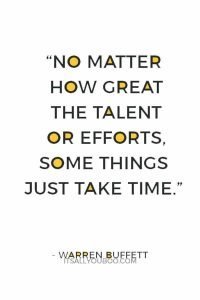Self-Esteem and Anger
Discover How Self-Esteem Helps You Deal with Your Anger
You’ve found yourself feeling a lot of anger lately – you’ve lashed out on people without meaning to, hurting them and damaging your relationships with them in the process. Your anger has affected your work and your social life. You are beginning to feel like it’s taking you over, and that your anger has spiraled out of control. What do you do?
The key to understanding your anger is to explore and discover its cause, or its root. And one of the common causes of anger in individuals is a lack of self-esteem.
Self esteem and anger may seem like two entirely different and unrelated concepts, but they can be associated with each other in the way that they affect one another. A lack of self esteem can lead to higher levels of anger and rage. How and why, you ask?
Here are some possible explanations.
Low self-esteem can lead you to unhappiness and depression.
When you’re unhappy and depressed, you are more prone to be infuriated and angry at certain circumstances and at the people around you. With low self-esteem, you are more likely to be dissatisfied with yourself and your life, and when you are dissatisfied, you are more likely to blame yourself and others for your dissatisfaction, leading you to hate yourself and to hate others. That hate is just a manifestation of anger.
Low self-esteem is that nagging voice in your head that eventually becomes that angry voice in your head.
When a person has low self-esteem, he is never happy or satisfied with himself – in fact, he may even see himself as unattractive and unacceptable. Such negative thoughts and emotions, when they start to pile up inside a person, eventually transform into angry thoughts directed not only towards one’s self but also towards others, thereby becoming harmful not only to the person but the people around him.
On the other hand, appropriate levels of self-esteem can lead to better anger management. One main reason: self-esteem allows you to respect yourself and respect others. When you have high self-esteem, you respect yourself, and when you respect yourself, you also respect others. And when you respect others, you don’t just lash out at them when you reach a disagreement, the way you would if you allowed your anger to take over your senses.
So how do you increase your self-esteem, and in the process handle your anger issues better?
Here are some ways to help you do so.
Enumerate the things that you like about yourself.
You can do a list on paper or just in your head – in any case, enumerate the traits and characteristics that you like about yourself. Whenever you find yourself becoming destructive and overly criticizing, think of this list and allow it to make you feel better. These things that you like about yourself are your strengths – use them at times when you feel weak and defeated.
Focus on your strengths, not on your weaknesses.
Once you’ve found and identified your strengths, it’s important to keep them in mind, instead of constantly thinking about your weaknesses. When you begin to pity and dislike yourself, start looking at your strengths and set aside your weaknesses – deal with these weaknesses another time, when you’re confident enough about yourself to face your flaws, and either accept them or try to change them.
Don’t dwell on failure, but relish in success.
Sometimes things just go wrong, no matter how hard you try to keep them from doing so. When you’ve failed on something, think about where you might have gone wrong, realize the lessons you’ve learned from the experience, and move on.
Don’t dwell on failures – learn from them and get on with life. Eventually success will come, and when it does, relish it, enjoy it. But don’t take too long doing so – enjoy your success for a while and then be ready to take on life’s next challenge afterwards. Success builds confidence, but leveraging on them too much might lead to misguided self esteem. Balance is the key.
Still having problems with your anger and your self esteem? Do not be embarrassed to seek professional help. Remember that the earlier you try to find a solution to your problem, the better. If you find that you won’t be able to solve your issues alone, console with a friend or a psychiatrist – there’s no shame in asking for help and we will discuss this further on.





